PRESERVING A MILITARY LEGACY FOR FUTURE GENERATIONS
The following Reflections represents SP5 John Beaumonte’s. legacy of his military service from 1966 to 1968. If you are a Veteran, consider preserving a record of your own military service, including your memories and photographs, on Togetherweserved.com (TWS), the leading archive of living military history. The following Service Reflections is an easy-to-complete self-interview, located on your TWS Military Service Page, which enables you to remember key people and events from your military service and the impact they made on your life. Start recording your own Military Memories HERE.
Please describe who or what influenced your decision to join the Army.
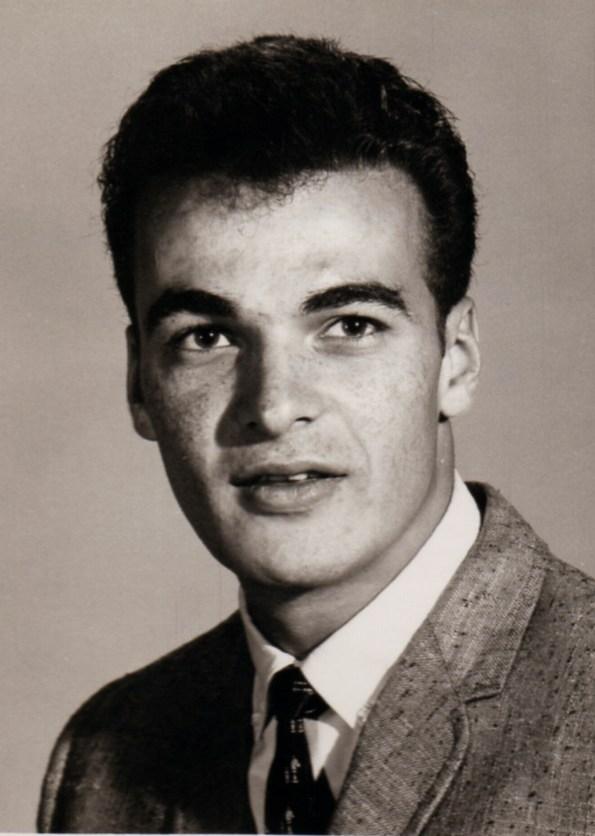
The Summer of 1966 was a big decision for me to volunteer for the draft. My grades in college weren’t that great, considering I had just completed my freshman year and at 19 was undecided on a major. Feeling the pressure of Uncle Sam coming to get me, I decided to pick my report date of induction rather than continue with deferments. The decision was mine alone.
Whether you were in the service for several years or as a career, please describe the direction or path you took. Where did you go to basic training, and what units, bases, or squadrons were you assigned to? What was your reason for leaving?
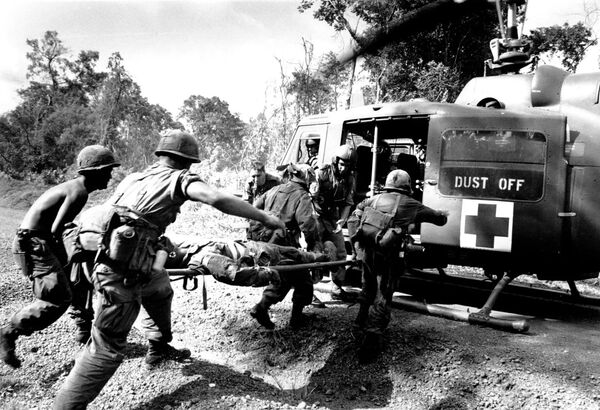
The Army selected me for a path to become a trained infantry medic. I was hoping for a stateside assignment after graduation from Fort Sam Houston in 1967, and I lucked out; I was assigned to Fort Leavenworth, Kansas, at Munson Army Hospital. While at Fort Leavenworth, I gained experience working on various hospital wards and in the EENT clinic. While working as a medical company clerk, I received orders for Vietnam in the Summer of 1967.
The 9th Infantry needed men. My orders were for the 196th Light Infantry Brigade, but the 9th Infantry took precedence, and I was assigned to the 4/47 of the 9th with the Mobile Riverine Force at Dong Tam as an Army field medic. I was wounded twice in 1968 and found my way back to Fort Leavenworth, but this time as a patient. I spent ten months having corrective surgeries before being separated. I left the service after being assigned to temporary disability leave in December 1968.
If you participated in any military operations, including combat, humanitarian, and peacekeeping operations, please describe those that made a lasting impact on you and, if life-changing, in what way?

I was assigned to Echo Company, 4th Platoon, 4th Battalion, 47th Infantry, 9th Infantry Division at Dong Tam, South Vietnam, as a combat medic. My combat operations were conducted during what was called Operation Coronado IX, from roughly November 1967 through January 1968 in the Mekong Delta.
My time spent with the 9th Infantry Division was that of an infantry support medic position; while I was assigned to HQ Company, I was farmed out to two companies, D and E. Since this time was based around the Christmas and New Year TET, fortunately for me, it was a slow time as far as enemy contact went. We were supporting the military base at Dong Tam while our boats, the USS Colleton (sent for refitting at Subic Bay in the Philippines) and the USS Benewah (refitting at Vung Tau), so most of my operations were conducted from ATC’s (Armed Troop Carriers) and by chopper to try to dismantle VC-held territory.
Participating in village medical details as well as taking care of my men while on field assignments had a lasting impact on me. The positive responses from the Vietnamese people after receiving medical care were gratifying. The camaraderie with my platoon and my wounds were life-changing because they taught me to be able to adapt to upcoming life changes whether they be medical, education, or job, the military prepared me and I will be forever grateful.
Did you encounter any situation during your military service when you believed there was a possibility you might not survive? If so, please describe what happened and what was the outcome.
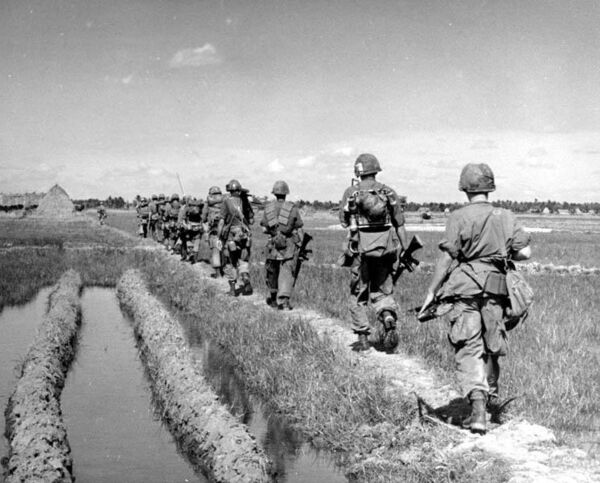
During my short time in Vietnam, I frequently experienced mop-up type operations where my company didn’t have direct enemy contact while out on our 3-day missions. My short tour in Nam was from shortly before the Christmas truce of 1967 and the New Year’s truce of 1968, where enemy activity was light and not concentrated in any one place, at least where I was.
As I was a fairly new grunt and a medic, my feeling was that of apprehension, in that because we were in the jungles among the Nippa palms as well as rice paddies for three days at a time, I never felt comfortable in my element, who would?
Now, fifty-two years later, I find memories of events have so greatly dimmed, but the memory of my fear remains in my gut and recall. I was a twenty-year-old grunt humping in the bush, having never before experienced doubt in my capabilities not only as a medic but as an infantryman.
When we set up our nightly perimeters and hunkered down until morning, we were being vigilant and experienced all the unseen noises from things you couldn’t see, only hear, especially when it was my turn on watch. Most of my missions were carried out after we had been dropped off (usually platoon strength) by our Navy friends operating Armed Troop Carriers (ATCs) on the river banks. Humping through the thicker vegetation in the heat and mud was a common chore for us as we searched for enemy activity or caches of food or ammo. It was when we had to traverse the rice paddies that I felt the most vulnerable because we were out in the open, and ambushes were a constant concern.
On January 24, 1968, while returning from a search & destroy mission near Vinh Long, Vietnam, I was injured by a booby trap that had been triggered somehow, sending fragments from a 60mm mortar into my right arm and right side of the head. I thought I had bought the farm, but God had other plans for me, thankfully. I was in medical hold back in the States for almost a year recovering from my wounds, but I am still here today.
Of all your duty stations or assignments, which one do you have the fondest memories of and why? Which was your least favorite?
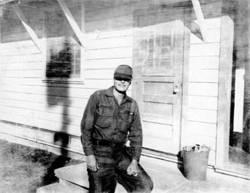
My fondest memories (sketchy at best) are of my unit, Echo Company, 4th platoon, in Vietnam, because they are from a time in my youth when I was becoming a man, so to speak, and also being able to reconnect with my platoon sergeant years later. My wife and I took a trip to Georgia and met with my old platoon sergeant, whom I had located several years ago but had not interacted with in person.
I was able to fill in some of the blank recollections that I had from my trauma, as well as my recovery after leaving Vietnam, most specifically, that I was a good medic, which I had somehow doubted over the past fifty-plus years.
My least favorite duty station was Fort Polk, LA. I was re-assigned to Fort Sam Houston for medical training.
From your entire military service, describe any memories you still reflect on to this day.
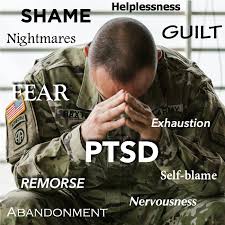
I was stationed at Fort Sam Houston, TX, for my Basic and Advanced Individual Training AIT (combat medical). One of our training sessions during basic was compass orienteering, and I remember going out to Camp Bullis, about 20 miles from Fort Sam, to do this at night. As I recall, we had to orient with our handheld compass to get from point A to B in the pitch dark. During this movement, I crawled over a cactus, resulting in needles in my knee. After returning to the barracks, I recall that removal with a tweezer was in order.
Stepping off an Armed Troop Carrier (ATC) at Dong Tam Naval Shipyard after returning at night from a three-day search and destroy mission, and almost drowning. We arrived back at the naval base very late at night and were disembarking from our boat individually onto the docks. As I was stepping off in full pack, of course, I expected to find concrete under my boot, but instead met water. I had the straps of two boat cushions in my hand (traded for C-4) that I miraculously didn’t let go of, which brought me back to the surface; the Navy guys were then able to pull me out by my rucksack. I had dropped my M-16 when I hit the water, so a scuba diver had to retrieve it for me the next day. I caught hell for losing my weapon, but hey, at least I survived! It was later determined that a wave hit the dock, which moved the side out from the pier, leaving enough gap for me to drop right in.
Getting wounded twice after only two months and four days in Vietnam, the second of which brought me home. For years, I suffered from a guilt complex in answering the questions that I had carried all these years of being separated from my men. What if I had been there to do my job? Would more have survived? I had come home early, and the guilt I held for not doing a full tour. PTSD is inevitable, but it’s what we do about it that brings us to today. I am constantly battling this guilt and coping with help from the VA, and I can only hope that others are benefiting the same way. It’s hard to explain, but with God’s help, I can get up in the morning, go about my day, and feel good about myself.
What professional achievements are you most proud of from your military career?
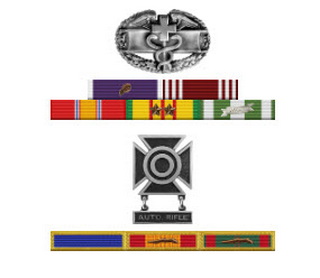
Reaching the rank of E-5 and earning a Combat Medical Badge and a Vietnam Service Medal.
Of all the medals, awards, formal presentations, and qualification badges you received, or other memorabilia, which one is the most meaningful to you and why?
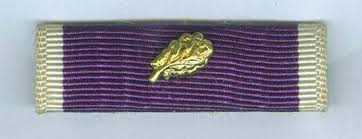
My Purple Heart with Oak Leaf Cluster
I lived to be able to wear it and display it in my shadowbox. Many others received this medal posthumously. I consider myself to be extremely fortunate.
Which individual(s) from your time in the military stands out as having the most positive impact on you and why?
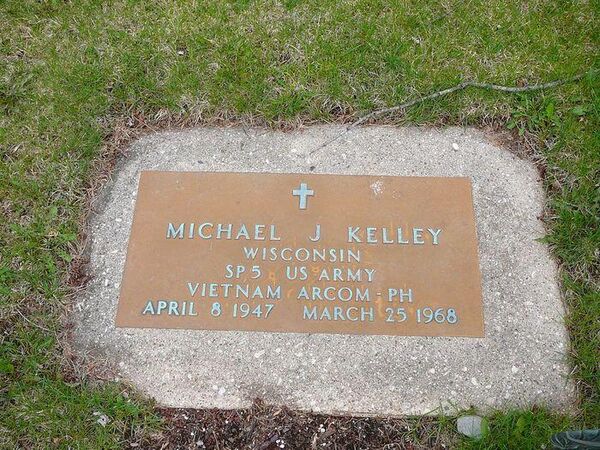
My 1st Sergeant, Bernard J. La Roche at Munson Army Hospital, when I was acting Medical Company clerk right before going to Vietnam, taught me much about selflessness and teamwork that prepared me for my life later on.
My Platoon Sergeant, Bob “Maddog” Pilcher, when I was in Vietnam, helped save my life after I was wounded, but taught me about self-preservation and also selflessness. I was able to reconnect with Bob in 2018 after fifty years and received (from him) my moniker, TripWire!
Michael J. Kelley, also from Wisconsin. Although I didn’t know Mike well, I remember him as a pretty level-headed guy with a sense of humor. He was also a medic and paid the ultimate price.
The military teaches us to adapt to change. If you can’t adapt, you will fail in most cases. My ability to adapt to change enabled me to remain employed with the same organization for thirty-nine years prior to my retirement. Also, being seen at the VA gets me through the old “hurry up and wait” scenarios that we all encounter in life.
List the names of old friends you served with, at which locations, and recount what you remember most about them. Indicate those you are already in touch with and those you would like to make contact with.
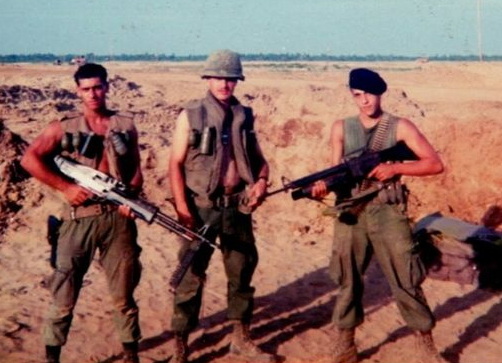
Curtis F. Winchester in basic training at Fort Sam Houston, TX
Michael J. Kelley at Munson Army Hospital, Fort Leavenworth, KS. A very likable and capable medic who was sadly killed in Vietnam
Charles F. Dziak, Bob R. Sundel, Chuck J. Fleischman at Munson AH, Fort Leavenworth, Kansas
Manny Castillo, a tunnel rat with whom I served with in E Co in Vietnam. I’d love to make contact with Manny, but I can’t seem to locate him.
Albert Odie, an M60 machine gunner whom I served with in E Co in Vietnam
Bob “Maddog” Pilcher, E Co platoon sergeant, with whom I am in contact with today
Victor “Doc Sam” Samorano, my senior aid doc in Vietnam
Can you recount a particular incident from your service, which may or may not have been funny at the time, but still makes you laugh?
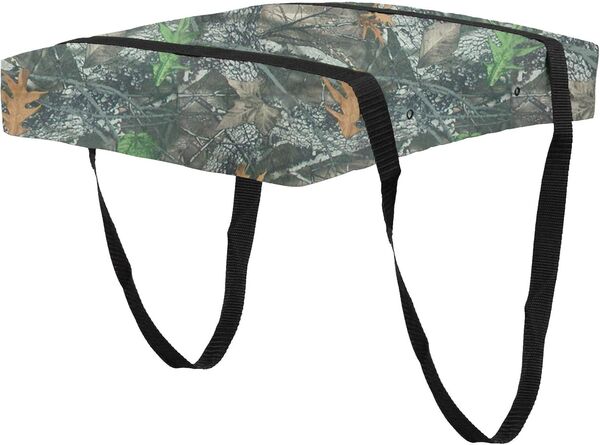
My platoon had just returned to the Dong Tam Naval Shipyard aboard an Armed Troop Carrier at night and was disembarking onto the dock when a wave hit against the pier, causing the boat to move away just as I was stepping off in full combat gear. Well, imagine my surprise when I expected to make contact with concrete and instead went swimming.
The only thing that kept me from drowning was that I had a hold of the straps of two Navy boat cushions that I had traded for with some C-4. I didn’t let go, and as they brought me back to the surface, I was grabbed by the bar of my rucksack and pulled out, looking like a drowned rat. I should have reported for sick call the next day, but stubbornly did not and paid for it over the next three days out in the field with the trotts!
What profession did you follow after your military service and what are you doing now? If you are currently serving, what is your present occupational specialty?
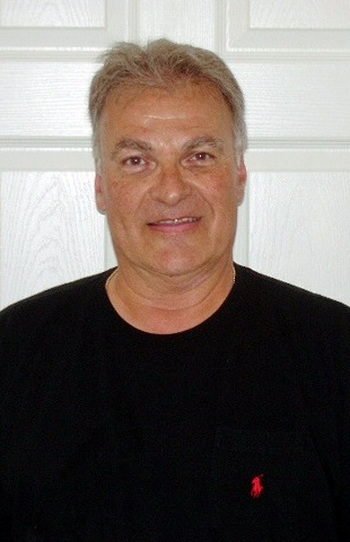
After I left the military, I didn’t want anything to do with the medical profession, so I attended computer school and spent the next 39 years working in this field at the University of Missouri in Columbia. I retired in 2009.
What military associations are you a member of, if any? What specific benefits do you derive from your memberships?
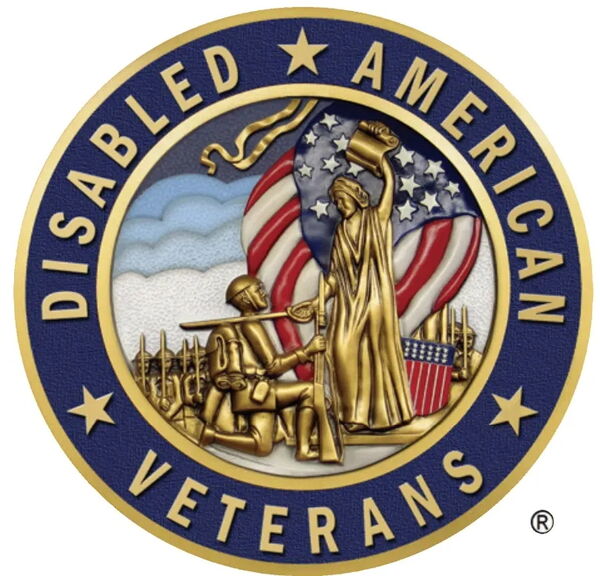
A lifetime member of the D.A.V.
In what ways has serving in the military influenced the way you have approached your life and your career? What do you miss most about your time in the service?
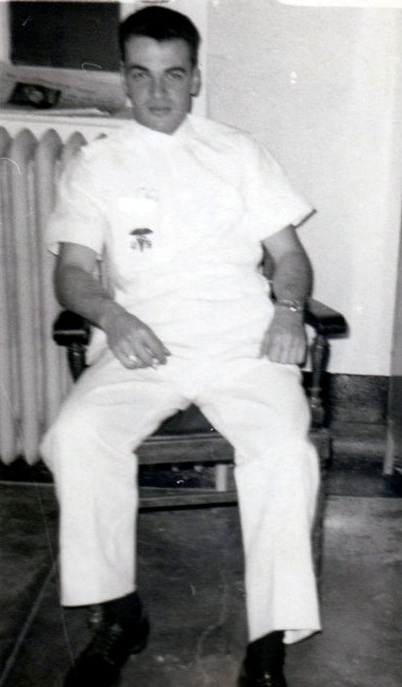
One of the things the military taught me was to be able to adapt to change; I’ve said this before, and I strongly emphasize this to today’s young people who are considering joining the military.
This helped me through life at the university to be able to adapt to change, like when they (outside consultant groups) threatened to outsource my job, or when simply changing job titles (for self-preservation) and workloads (being able to multitask). Of course, I miss most of my youth and my friends while in the service.
Based on your own experiences, what advice would you give to those who have recently joined the Army?
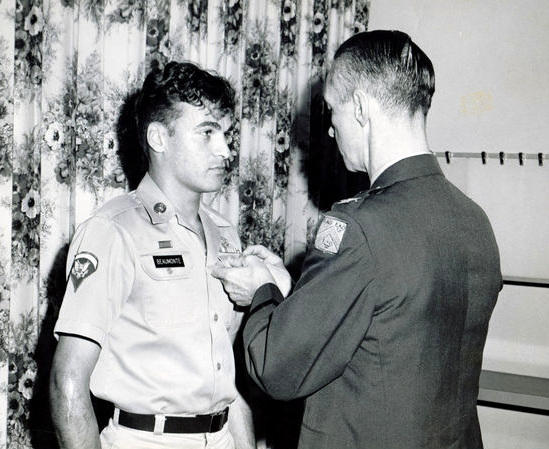
Learn everything you can (build up expertise) and don’t be afraid to try new things. Think about your life after the military, and allow the things you enjoy doing on active duty to influence your life after the military.
In what ways has TogetherWeServed.com helped you remember your military service and the friends you served with.
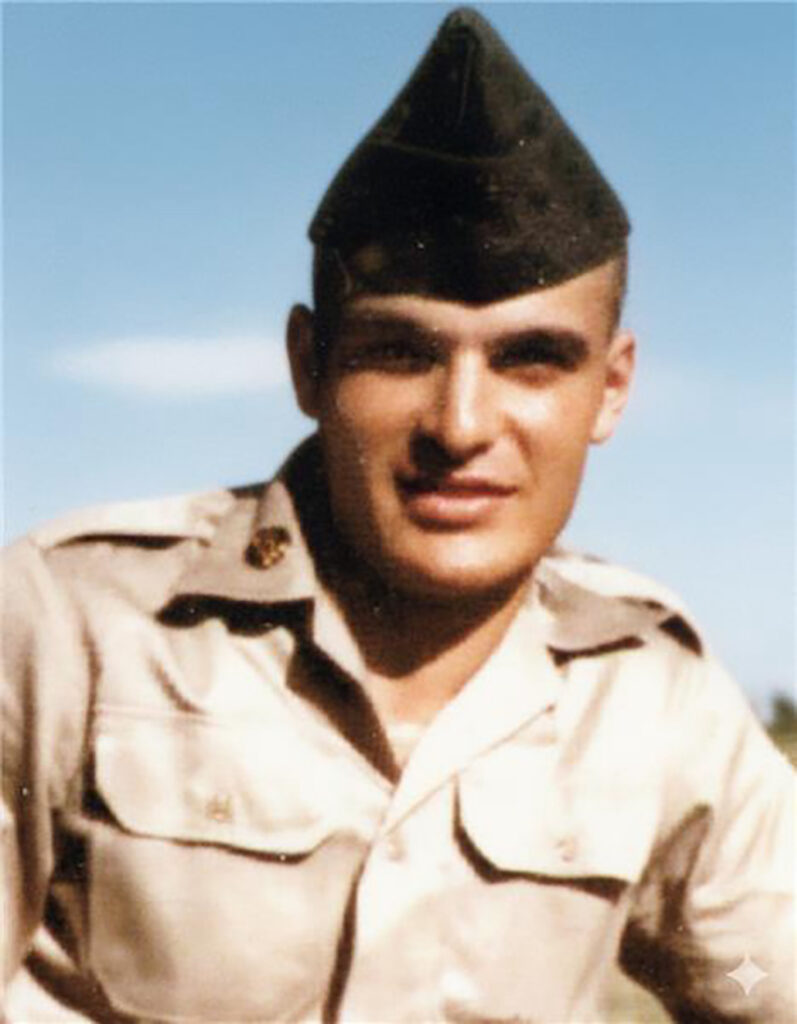
Mostly, TWS has helped me log formally my military career as well as recall things I had forgotten over the years. It’s also a great avenue for reestablishing connections with military buddies, as well as becoming acquainted with new friends.
PRESERVE YOUR OWN SERVICE MEMORIES!
Boot Camp, Units, Combat Operations
Join Togetherweserved.com to Create a Legacy of Your Service
U.S. Marine Corps, U.S. Navy, U.S. Air Force, U.S. Army, U.S. Coast Guard

0 Comments